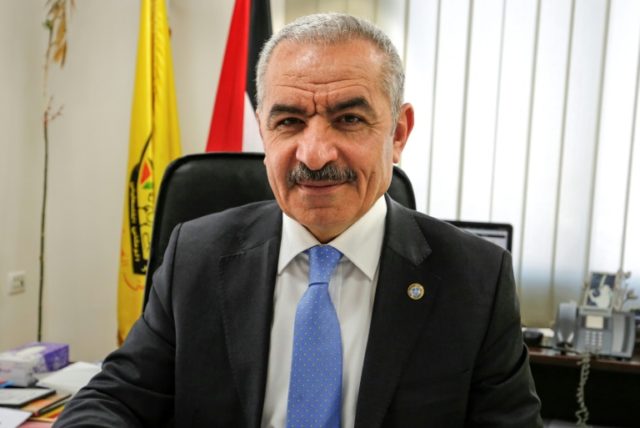Ramallah (Palestinian Territories) (AFP) – Mohammad Shtayyeh, a long-term Palestinian politician, was named prime minister by president Mahmud Abbas on Sunday.
Who is he and what impact will the appointment have?
Who is Shtayyeh?
Born in the city of Nablus in the West Bank in 1958, he was nine years old when Israel seized the territory during the Six-Day War, an occupation that continues.
He studied at Birzeit University in the West Bank, completed a PhD in development at Sussex University in Britain and then returned to the Palestinian territories in the late 1980s.
Since then he has spent much of his life working alongside Abbas, with whom he has a close relationship.
He was part of US-brokered negotiations with Israel in 1991 and again in 2013-14, led by then US secretary of state John Kerry.
A political moderate, he is a strong supporter of the two-state solution, meaning the creation of an independent Palestinian state alongside Israel.
He has served as a minister twice in previous Palestinian governments, as well as held major roles in economic development initiatives including the Palestinian Economic Council for Development and Reconstruction.
He is also an academic and has taught at Birzeit.
What’s new?
Shtayyeh replaces Rami Hamdallah, who had been prime minister since 2014.
Unlike the two previous prime ministers who were ostensibly politically independent, Shtayyeh comes from Fatah, Abbas’s political party.
Analysts see this as a government that will be dominated by Fatah, while its predecessor was at least theoretically agreed upon by all parties.
In particular its formation isolates Hamas, the other major Palestinian party and Islamist movement that runs the Gaza Strip.
Hamas and Fatah have been at loggerheads since the Islamists seized control of the Gaza Strip in a 2007 near civil war, a year after winning parliamentary elections.
Palestinian politics has effectively been frozen since, and multiple reconciliation attempts have faltered.
The previous government was formed at a time of potential breakthrough in talks and had the backing of Hamas and other factions.
Abbas’s spokesman Nabil Abu Rudeinah admitted last month that the collapse in reconciliation talks had led to the new government.
“If Hamas is not willing for reconciliation, if Hamas is not willing for elections, if Hamas is still wanting with others to form a mini-state in Gaza for the Muslim Brotherhood — if this is their strategy we have to end this relationship. That’s why we have to form a new government,” he told journalists.
Hugh Lovatt, an analyst at the European Council on Foreign Relations, said critics would see the move as a “naked power grab by Fatah”.
“There was a desire to replace the previous government — which was seen to be underperforming — with a more political government, but it will also fully shut Hamas out of the decision-making process and further undermine Palestinian democracy,” he told AFP.
Theoretically there are also meant to be new Palestinian parliamentary elections by May, though analysts say the chances are slim.
Elections have not been held since 2006, when Hamas scored a surprise victory. Israel, the United States, the European Union and others consider Hamas a terrorist organisation.
Who will be a member?
The government will now be theoretically made up of the factions of the Palestine Liberation Organisation (PLO). This organisation is led by Fatah but includes a number of other parties. Hamas is not part of the PLO.
It is not clear how many of the others will take up the offer to be part of the government.
In particular two large leftist factions have voiced their opposition to the new government and are not expected to join.
What will its policies be?
Don’t expect major shifts in policy, whether on the Palestinians’ relations with Israel, the United States or other areas.
Palestinian Authority governments have long been seen as subservient to Abbas and the executive committee of the PLO.
Abu Rudeinah admitted as much, saying the direction would still be steered by Abbas.
“The government has never been the policymaker here. The PLO is the only side that has to take decisions,” he said.

COMMENTS
Please let us know if you're having issues with commenting.